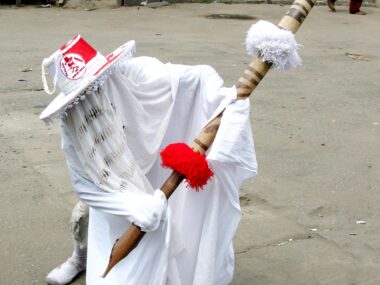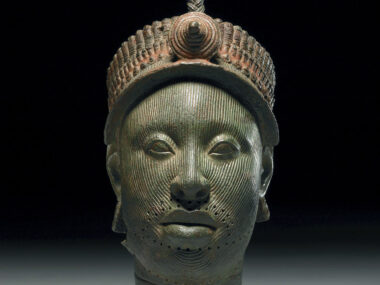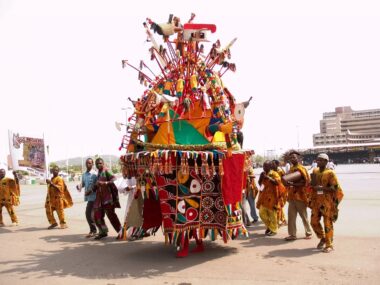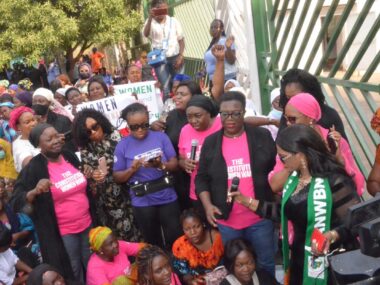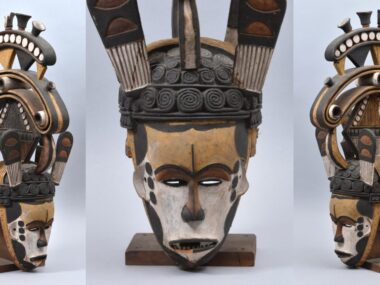African folktales form a rich tapestry of stories that have been passed down through generations, serving as both entertainment and a means of transmitting cultural values, morals, and traditions. These stories are characterized by their use of animals, magic, and moral lessons, reflecting the diverse cultures and languages of Africa. In modern literature, African folktales have significantly influenced narratives, themes, and storytelling techniques. This exploration delves into the significance of African folktales, their common themes and characteristics, and their impact on contemporary African literature.
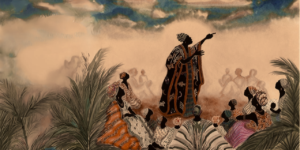
The Significance of African Folktales
Oral Tradition and Cultural Transmission
In many African societies, oral tradition is the primary means of preserving and conveying knowledge. Folktales, along with proverbs, songs, and myths, play a crucial role in this tradition. They are used to educate the young, entertain, and impart moral lessons. Storytellers, often revered members of the community, are responsible for keeping these tales alive, ensuring they are passed down through generations.
Community and Identity
African folktales are deeply rooted in the community and reflect the collective identity of the people. They often address social norms, values, and communal experiences, reinforcing a sense of belonging and continuity. These stories serve as a mirror of the community’s beliefs, struggles, and aspirations, helping to maintain a shared cultural heritage.
Teaching and Moral Lessons
Folktales are frequently used as educational tools, teaching children about right and wrong, the consequences of actions, and the importance of virtues such as honesty, bravery, and kindness. Characters in these tales, often animals with human traits, embody these lessons in ways that are engaging and memorable for listeners.
Common Themes and Characteristics of African Folktales
Personification of Animals
One of the most distinctive features of African folktales is the personification of animals. Animals are often given human characteristics and serve as the main protagonists in the stories. For example, the trickster character, such as Anansi the Spider in West African and Caribbean folklore, uses wit and cunning to navigate challenges, teaching lessons about intelligence and resourcefulness.
Moral and Ethical Lessons
African folktales are rich with moral and ethical lessons. These stories often depict the triumph of good over evil, the rewards of virtue, and the consequences of vice. For instance, tales might highlight the importance of honesty, the dangers of greed, or the value of community cooperation.
Reflection of Social Structures
Folktales often reflect the social structures and relationships within African communities. They address themes such as kinship, hierarchy, and social roles. For example, stories might explore the dynamics between elders and the young, men and women, or leaders and followers, offering insights into the societal norms and expectations.
Use of Repetition and Rhythm
Repetition and rhythm are common elements in African folktales, making them easier to remember and recite. Repeated phrases or patterns create a musical quality that enhances the storytelling experience and aids in the retention of the tale.
Elements of Fantasy and Magic
Many African folktales incorporate elements of fantasy and magic. Characters might possess supernatural abilities, encounter magical creatures, or embark on fantastical journeys. These elements add an imaginative dimension to the stories, captivating the audience and expanding the realms of possibility.
Influence of African Folktales on Modern Literature
Preservation and Adaptation
Modern African literature often draws upon the rich reservoir of traditional folktales, preserving their essence while adapting them to contemporary contexts. Writers use these stories to connect with their cultural roots, reinterpreting them to address modern themes and issues.
Inspiration for Narrative Structure
The narrative structure of African folktales, with their clear moral lessons and engaging plots, provides a blueprint for modern storytelling. Authors use similar techniques, such as personification, repetition, and the integration of moral lessons, to create compelling narratives that resonate with readers.
Themes and Motifs
Themes and motifs from African folktales frequently appear in contemporary literature. Issues such as social justice, community, and identity are explored through the lens of traditional stories. For example, the theme of the trickster is a recurring motif, symbolizing resistance and resilience in the face of oppression.
Language and Style
The oral tradition of African folktales influences the language and style of modern African literature. Authors often incorporate elements of oral storytelling, such as rhythmic language, repetition, and direct address to the audience, creating a dynamic and immersive reading experience.
Cultural Identity and Representation
African folktales play a crucial role in shaping cultural identity and representation in literature. By incorporating these stories, modern authors celebrate their heritage and challenge stereotypes, offering a more nuanced and authentic portrayal of African cultures.
Prominent Authors and Works Influenced by African Folktales
Chinua Achebe
Chinua Achebe, one of Africa’s most renowned authors, frequently drew upon traditional Igbo folktales in his works. In “Things Fall Apart,” Achebe integrates folktales to provide cultural context and enrich the narrative. These stories help to illustrate the values and beliefs of the Igbo people, offering readers a deeper understanding of the characters and their motivations.
Ngũgĩ wa Thiong’o
Kenyan writer Ngũgĩ wa Thiong’o is another prominent author who incorporates African folktales into his literature. In “The River Between” and other works, Ngũgĩ uses folktales to explore themes of colonialism, cultural identity, and resistance. His storytelling reflects the oral tradition, creating a powerful connection between past and present.
Amos Tutuola
Amos Tutuola’s novel “The Palm-Wine Drinkard” is heavily influenced by Yoruba folktales. The book’s fantastical elements and narrative style reflect the oral tradition, weaving together mythology, magic, and moral lessons. Tutuola’s work exemplifies how folktales can inspire innovative and imaginative literature.
Buchi Emecheta
Buchi Emecheta, a Nigerian author, often infused her stories with elements of traditional folklore. In “The Joys of Motherhood,” Emecheta incorporates folktales to highlight the cultural expectations and challenges faced by women in Nigerian society. These stories add depth and context to the characters’ experiences, enriching the overall narrative.
Ben Okri
Nigerian author Ben Okri’s “The Famished Road” draws on Yoruba mythology and folktales to create a magical realist narrative. The protagonist, Azaro, is a spirit child navigating the complexities of life and death. Okri’s use of folklore and magical elements creates a rich, layered story that explores themes of identity, destiny, and resilience.
Contemporary African Literature and Folktales
Reinterpretation and Innovation
Contemporary African writers continue to reinterpret and innovate upon traditional folktales. They blend ancient stories with modern themes, creating literature that is both rooted in tradition and relevant to contemporary issues. This fusion allows for a dynamic and evolving literary landscape that honors the past while addressing the present.
Addressing Modern Issues
Modern African literature often uses folktales as a framework to address pressing social and political issues. Authors tackle topics such as post-colonialism, gender equality, and environmental conservation, using the familiar structure of folktales to engage readers and provoke thought.
Representation and Diversity
Incorporating folktales into contemporary literature also promotes representation and diversity. By drawing on a wide range of cultural stories, authors can showcase the richness and variety of African experiences. This approach challenges monolithic portrayals of Africa and highlights the continent’s diverse cultures and histories.
Global Influence
The influence of African folktales extends beyond the continent, impacting global literature. Writers of African descent, as well as those from other cultural backgrounds, draw inspiration from these stories, enriching the global literary canon. This cross-cultural exchange fosters greater understanding and appreciation of African traditions and storytelling.
Conclusion
African folktales are a vital part of the continent’s cultural heritage, offering timeless wisdom, entertainment, and a sense of identity. Their influence on modern literature is profound, providing a rich source of inspiration for narrative structure, themes, language, and style. By preserving and adapting these stories, contemporary African authors celebrate their heritage and address modern issues, creating a dynamic and evolving literary landscape. As these tales continue to inspire and inform, they ensure that the voices and values of African cultures remain vibrant and influential in the global literary community.

